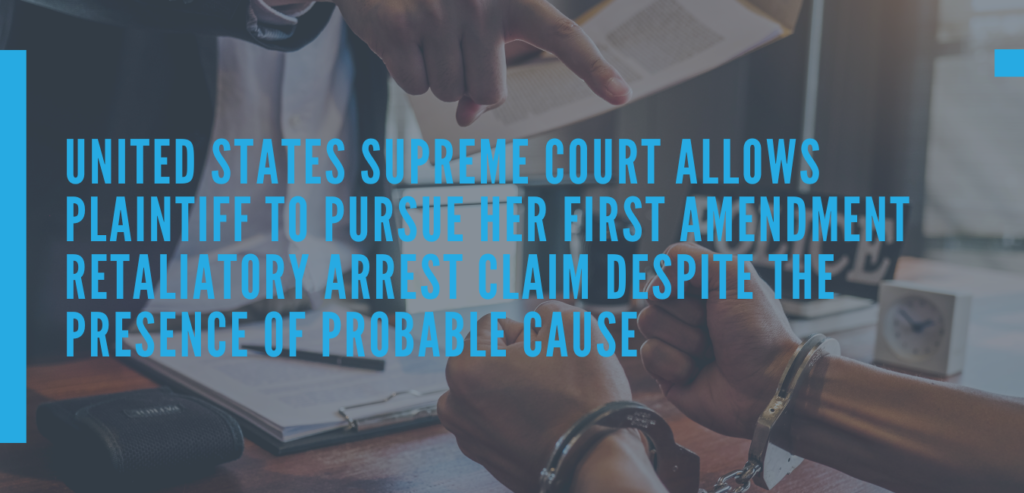Read below to learn more about the case Gonzalez v. Trevino and how it impacts First Amendment rights in false arrest claims.
In Nieves v. Bartlett (2019), the Supreme Court established that a plaintiff bringing a retaliatory arrest claim must typically prove the absence of probable cause for their arrest. However, there’s an exception: if the plaintiff can show objective evidence that they were arrested while others in similar situations, who were not engaging in protected speech, were not arrested. The Supreme Court reviewed whether the Fifth Circuit applied these principles correctly and concluded that it did not. Consequently, the judgment of the Fifth Circuit has been vacated and the case is remanded for further proceedings consistent with this opinion.
In 2019, Sylvia Gonzalez ran for a city council seat in Castle Hills, Texas. She heard complaints about City Manager Ryan Rapelye and, after being elected, helped gather over 300 signatures for a petition seeking his removal. During a city council meeting, a heated discussion about the petition occurred, and Gonzalez accidentally found the petition in her binder. Mayor Edward Trevino reported this to the police, leading to an investigation. A private attorney concluded that Gonzalez likely violated a Texas anti-tampering statute, resulting in her arrest. Gonzalez turned herself in and spent a night in jail, but the charges were later dismissed. She then sued under 42 U.S.C. §1983, claiming her arrest was retaliation for organizing the petition, violating her First Amendment rights.
Gonzalez presented evidence that the anti-tampering statute had never been used in Bexar County for nonbinding documents like the petition, suggesting a political vendetta. The district court allowed her claim to proceed despite her conceding probable cause, citing an exception from Nieves v. Bartlett. However, the Fifth Circuit reversed this decision, stating Gonzalez failed to provide comparative evidence of similar individuals not being arrested. The Supreme Court granted certiorari to review the case.
Gonzalez wants the Fifth Circuit’s decision reversed for two reasons. First, she argues that the court was wrong to require specific comparator evidence to fit within the Nieves exception. Second, she contends that the Nieves no-probable-cause rule should only apply to quick, on-the-spot arrests, not deliberate ones. We agree with Gonzalez on the first point: the Fifth Circuit’s requirement for very specific comparator evidence is too strict. While the Nieves exception is narrow, demanding almost identical comparisons goes too far.
The Nieves exception is meant for situations where officers have probable cause but typically choose not to make arrests. A plaintiff needs to provide objective evidence showing their arrest happened under such circumstances. Gonzalez did this by pointing out that no one has ever been arrested for mishandling a government petition like she did, which is a valid type of evidence. This shows it’s likely officers have chosen not to arrest others for similar conduct in the past.
Since the Supreme Court agreed with Gonzalez’s first argument, The Court did not consider the second. The Supreme Court sent the case back for the lower courts to decide if Gonzalez’s evidence meets the Nieves exception.
Do you have a case that sounds similar? Reach out to us today for a FREE consultation.

